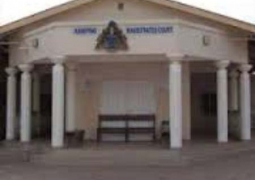
In refuting such accusations we should distinguish between Az-Zakat and alms. Charity is voluntary. It cannot be imposed by law or by order of the ruler. Az-Zakat, on the other hand, is an ordinance prescribed by law: the government must fight those who refuse to pay Az-Zakat and may even kill them if they persist in such refusal, because they would then be considered apostates. It is needless to say that nothing of the sort will happen with respect to charity which is completely left to our conscience.
From the financial point of view, Az-Zakat was the first regular tax ever imposed in the world. Before that, taxes were imposed according to the whims of rulers. The exaction of such taxes was affected by the ruler’s need for money to achieve personal ambitions. The burden of taxation used to fall on the poor rather than on the rich and very often the taxes were collected from the common people alone. Islam organized the collection of taxes and prescribes a maximum percentage which may not be exceeded in ordinary circumstances. Taxes were imposed on the rich and middle classes but the poor were exempted.
It should be borne in mind that Islam prescribes that the proceeds of Az-Zakat should be distributed among the poor by the state and not by the rich people. In this sense, Az-Zakat is a tax collected and distributed by the state. The Public Treasury under Islam is the counterpart of the modern Ministry of Finance which collects public revenues and distributes these among the various public utilities. The state supports and looks after those who become needy-through inability to earn their living or due to the insufficiency of their means-but it cannot be said that the state does that out of charity or that such help is humiliating to the recipients. No one can say that retired officials who benefits from social security schemes feel like begging from the rich. The same thing can be said of helpless children and an aged person who cannot earn his living. No one can say that the pride of such people is hurt when the state supports and extends aid to them. The state is a bound to do such things by virtue of its human obligations.
Social security by the state is a modern system which humanity managed to adopt after bitter experiences and a long history of social injustice. One of the glories of Islam is that it prescribed the said system at a time when Europe lived in social darkness. Yet some people, who are charmed by systems which are imported from the West or East, accuse the same systems of regression and backwardness if they had been adopted by Islam.
It should be pointed out that if the circumstances of life in the early years of Islam necessitated tolerating that the poor may personally receive Az-Zakat in cash or in kind, nothing in the provisions of Islam prescribes that the aforesaid method is the only way for distribution of Az-Zakat. Therefore, nothing in Islam prevent the use of Az-Zakat funds in building hospitals and schools from which people may benefit or in the establishment of cooperative societies which can make life easier for the poorer people or in the construction of factories which provide permanent employment for many people. In other words, the proceeds of Az-Zakat may be given in the form of social services. Only those who are incapacitated through illness, old age or childhood, are entitled to receive Az-Zakat in cash but others may receive it in the form of employment or social services.
Besides, the Islamic society is not supposed to comprise any poor people who might live in complete dependence on Az-Zakat. It is good to remember that the Islamic society reached and ideal stages during the age of Omar bin Abdel Aziz. Az-Zakat was collected, yet the collectors could not find any one who would accept it or any poor people among whom they might distribute it. Let us listen to what was said by Yehia bin Said, a Zakat collector under Omar bin Abdel Aziz: “Omar bin Abdel Aziz sent me to collect alms from Africa. I collected the alms and then looked for the poor to distribute the alms among them but I found none, nor did I find anyone who might have accepted these from me for Omar bin Abdel Aziz had enriched the people”.
There is no doubt that every community is likely to include poor and needy people. Therefore necessary legislation should be made to face such a problem. It should be borne in mind that Islam constantly attached to itself new communities with different degrees of richness. It was only natural that legislation should be made which would help to lead gradually to the ideal stage which existed under the rule of Omar bin Abdel Aziz.
ALMS:
Alms are the properties which the rich voluntarily give for the sake of charity. Islam approved and encouraged almsgiving. Alms were supposed to be given in various ways: by supporting parents and relatives, and helping the needy in general. It may also take the form of good deeds or kind words.
As for the gifts in kind which are given to the needy, they are subject to the same prescriptions which governed Az-Zaka in the early days of Islam.Circumstances of life at the time tolerated the means to help the needy and those in trouble. Nothing in Islam prescribed that alms should be given in one form only. Alms may be given in the form of donations to societies and organizations which provide social services. Az-Zaka may be given as an aid to any Islamic state which needs funds for the execution of its schemes and enterprises. Islam maintains that as long as there are poor people, the state should try all possible means to make their life more comfortable. Besides, the Islamic society is not supposed to comprise only poor people. When the Islamic state reaches the above-mentioned ideal stage, many people may not be in need of alms just as they at one time did not need Az-Zaka. In such a case, both Az-Zaka and alms will be allocated for services that are of great importance to every community i.e., looking after people who are unable to work for any reason whatsoever.
It will be noticed that Islam has never called upon Muslims to lead a life of dependence on charity. The Islamic state is required to secure honorable life for those who are unable to earn their living, it being understood that such obligation is not the outcome of charity or condescension.
On the other hands, the Islamic state is required to provide work for every person who is able to work. The state’s obligation to find work for every Muslim is emphasized by the following tradition:-
“A man came to the Prophet (SAW) begging for anything to live on. The Prophet gave him an axe and a rope and ordered him to collect some wood and sell it and live by its price. He further told the man to come back and report what would happen to him”.
Now, some misguided people may be inclined to say that the above-mentioned tradition is just an individual example of no significance in the twentieth century. They would also say that the said example involved an axe, a rope and one man whereas modern life involves great factories, million of unemployed workers and organized governments whose functions are carries out by various competent departments.
Such logic is surely a naïve one. The Prophet was not required to talk about factories or lay down the necessary legislation a thousand years before the existence of any factories. If he had done so no one would have understood him.
It was quite sufficient that he laid down the basic principles of legislation, leaving for each generation the task of devising their suitable method of application within the framework of the basic principles.
The above-mention tradition contains the following basic principles:
1.Sense of responsibility of the Prophet (i.e. head of the state) for finding work for the man.
2.The Prophet ensured work for that man (according to the circumstances existing at that time).
3.The Prophet emphasized his sense of responsibility by ordering the man to come back and report what would happen to him.
This sense of responsibility which Islam prescribed thirteen centuries ago is completely supported by the most modern economic and political theories. But where the state is unable to find work for the unemployed, the Public Treasury will support them until their circumstances improve. There is nothing wrong in this, for Muslims are generous to themselves, to the state and to others.
Read Other Articles In Article (Archive)
BAC drags 72 rate/tax defaulters to court
Sep 28, 2010, 12:46 PM



